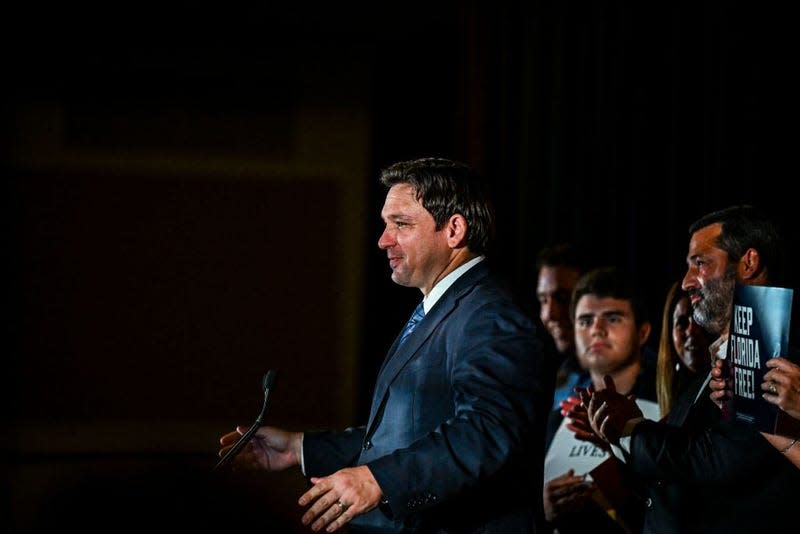Florida's Election Police Are Carrying Out Voter Fraud Arrests On People Previously Told They Were Eligible

- Oops!Something went wrong.Please try again later.
Yesterday, The Root wrote about Florida Gov. Ron Desantis’s executive order that only granted voting exceptions to three Republican-leaning counties. Now, there seems to be even more problems due to the governor’s supposed crackdown on voter fraud, as the Tampa Bay Times has pointed out.
In April, Governor Desantis signed a bill creating the Florida Office of Election Crimes and Security, an election police force. This was instituted as Republicans increased their efforts to crack down on what they believe was widespread fraud after the 2020 Presidential elections. Desantis announced 20 arrests claiming these citizens had illegally voted for various reasons. However, as the Times shows, there has been a lot of confusion, particularly with Black citizens who claim election officials had told them they were eligible to vote.
Read more
This is the exact case of Tony Patterson, who was shocked when law enforcement came to arrest him.
“What is wrong with this state, man?” Patterson protested as he was being escorted to a police car in handcuffs. “Voter fraud? Y’all said anybody with a felony could vote, man.”
A police officer detains Tony Patterson outside his Tampa home.
Of the 20 people arrested, 12 were registered as Democrats, and at least 13 are Black, according to the Times and Miami Herald. In 2018, a Florida state constitutional amendment restored the right to vote to many felons as soon as they fulfilled their obligations. This excludes murderers and sex offenders. However, Desantis signed a 2019 law requiring returning citizens to pay off all legal and financial obligations.
The ongoing issue is that Florida’s voting registration forms give no insight into who is eligible under these parameters. These forms only require two things; for a person to indicate they are not a felon or that they’ve had their rights restored. Nothing specifically outlines what would disqualify them.
Romona Oliver is detained in a driveway on her way to work
In the case of Romona Oliver, 55, she served 18 years in prison on a second-degree murder charge. After she left prison, Oliver registered to vote at the Department of Highway Safety and Motor Vehicles on Feb. 14, 2020. Six months later, she updated her address and completed another registration form.
From there, Oliver was granted voter ID cards twice by the Florida Department of State. Despite all of this, she was arrested before leaving for work. Even the police officers sounded confused, informing her of the warrant. Are these instances simply situations where Desantis’s order is trying to create disorder to lay the groundwork to challenge election results? It seems so.

